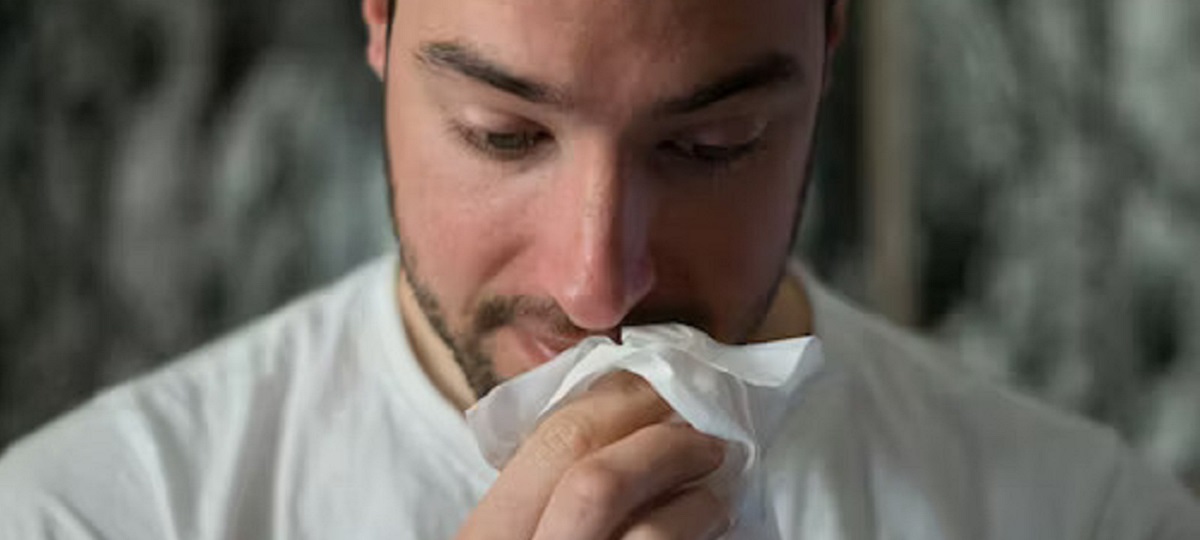Sinusitis, dizziness, and anxiety – a seemingly disparate trio of ailments, yet they can be surprisingly interconnected. While sinusitis primarily affects the sinuses, dizziness and anxiety can arise due to this inflammation, creating a frustrating web of symptoms. Let’s examine this complex link in more detail.
Sinusitis: The Root of Discomfort
Sinusitis is the inflammation of the paranasal sinuses, air-filled cavities located around your nose and cheeks. When these become blocked due to allergies, infections, or other factors, mucus production increases, leading to pressure and pain. Common symptoms include facial pain, congestion, headaches, and postnasal drip.
Dizziness and the Sinusitis Connection
Dizziness, a feeling of lightheadedness or unsteadiness, can be a surprising symptom of sinusitis. This occurs due to the proximity of your sinuses to your inner ear, which plays a crucial role in balance. Inflammation in the sinuses can put pressure on the inner ear, disrupting the delicate balance mechanism and triggering dizziness.
Here’s a breakdown of the potential pathways:
- Inner ear pressure: When inflamed sinuses press on the inner ear, the fluid levels within can become unbalanced, leading to dizziness.
- Vision problems: Congestion can put pressure on your eyes, causing them to feel strained and affecting your focus. This blurry vision can contribute to a feeling of dizziness.
- Dehydration: Sinusitis can lead to dehydration due to difficulty breathing through the nose and increased mucus production. Dehydration can worsen dizziness as it affects blood flow and inner ear function.
Anxiety: A Frustrating Intertwine
The discomfort and disruption caused by sinusitis can undoubtedly trigger anxiety. The constant pressure, facial pain, and difficulty breathing can lead to feelings of worry and stress. This anxiety can further exacerbate the situation, creating a vicious cycle.
Here’s how anxiety can worsen sinusitis symptoms:
- Muscle tension: Anxiety can cause muscle tension throughout the body, including the facial and neck muscles surrounding the sinuses. This tension can worsen facial pain associated with sinusitis.
- Sleep disturbances: Anxiety can disrupt sleep patterns, leading to fatigue and a weakened immune system. This can make it harder for the body to fight off infections and prolong sinusitis.
- Increased focus on symptoms: Anxiety can heighten our awareness of bodily sensations. This can make you focus more on the pressure and discomfort caused by sinusitis, further amplifying anxiety.
Breaking the Cycle: A Multi-Pronged Approach
Fortunately, there are ways to address both sinusitis and its associated dizziness and anxiety. Here’s a multi-pronged approach to consider:
Treating Sinusitis:
- Medications: Over-the-counter decongestants and pain relievers can help alleviate congestion and pain. In case of bacterial infections, antibiotics may be prescribed by a doctor.
- Nasal irrigation: Using a saline nasal spray or neti pot can help clear mucus buildup and reduce congestion.
- Warm compresses: Applying warm compresses to the face can help relieve sinus pressure and pain.
- Steam therapy: Inhaling steam can loosen mucus and make it easier to clear.
Managing Dizziness:
- Stay hydrated: Dehydration can worsen dizziness. Aim to drink plenty of fluids throughout the day.
- Gradual movement: If you experience dizziness when standing up quickly, try getting up slowly and allowing your body time to adjust.
- Manage stress: Techniques like relaxation exercises and deep breathing can help manage anxiety and reduce the feeling of dizziness.
Reducing Anxiety:
- Cognitive behavioral therapy (CBT): CBT can help identify and change negative thought patterns that contribute to anxiety.
- Relaxation techniques: Practices like meditation, yoga, and progressive muscle relaxation can help calm the mind and body.
- Exercise: Regular physical activity can improve overall well-being and reduce anxiety symptoms.
Seeking Professional Help
Seeking medical advice is essential if your symptoms worsen or continue. They are able to identify the root cause of your sinusitis and lightheadedness and suggest the best course of action. Additionally, consulting a therapist may be quite helpful if anxiety has a major negative influence on your day-to-day functioning.
Living a Balanced Life
By addressing the root cause of sinusitis and managing both dizziness and anxiety, you can regain control of your well-being. Remember, a healthy lifestyle with sufficient sleep, a balanced diet, and stress management techniques can play a significant role in keeping all three conditions at bay. Don’t hesitate to seek professional guidance if you need help navigating this complex web of symptoms.
